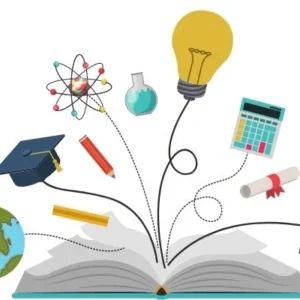Blended finance has emerged as a central strategy for financing sustainable development, especially in the aftermath of the Fourth International Conference on Financing for Development (FfD4). The concept involves using public or philanthropic funds to reduce investment risks, thereby attracting private capital to areas that support the Sustainable Development Goals (SDGs). With developing countries facing a $4 trillion annual SDG financing gap, blended finance presents a viable pathway to unlock a portion of the $450 trillion in global financial assets.
The United Nations is already leading several successful blended finance initiatives. In Kenya, a results-based financing model raised $12.1 million from private investors to support adolescent reproductive health services, reaching over 420,000 girls. Philanthropic donors repaid the investment based on outcomes, demonstrating how finance can drive measurable impact.
In Indonesia, the UN helped channel $2 million in equity and $500,000 in catalytic grants into startups focused on climate and development. By facilitating investor matchmaking, improving impact measurement, and strengthening environmental standards, the initiative supported sustainable enterprise growth.
In Zimbabwe, a Renewable Energy Fund backed by UN agencies and managed by Old Mutual Investment Group combined public and private resources to finance clean energy projects. The UN contributed $10 million, which was matched by Old Mutual and supported by an additional $1 million from the government.
North Macedonia’s Green Finance Facility pooled $46 million from local banks, international donors, and government sources to help small businesses and vulnerable households invest in energy efficiency. In Colombia, a UN Peacebuilding Fund initiative achieved a 6:1 leverage ratio of private to public investment through a competitive proposal process.
Suriname saw a breakthrough in agricultural finance, with the UN helping pineapple farmers gain access to credit despite lacking traditional collateral. A blended finance loan facility reduced risk for banks, opening new opportunities for underserved rural producers.
UN Resident Coordinators have played a key role in aligning stakeholders, bringing together technical experts and financial institutions to implement these projects effectively. Their involvement has ensured that financing aligns with national priorities and development goals.
Several lessons have emerged from these efforts. First, a shift in mindset is necessary—traditional aid models are no longer sufficient, and working with financial market actors requires adaptability and creativity. Second, early engagement with the financial sector builds trust and confidence, supported by the UN’s credibility and neutrality. Third, national ownership is essential; when governments are involved in shaping strategies and understanding risks, outcomes improve.
Blended finance is not a one-size-fits-all solution. It works best where revenue streams are predictable and risks are measurable. Honest assessments are needed to determine where and how it can effectively support vulnerable populations. Lastly, sustainability is key. While many projects begin with concessional funding, the long-term goal is to transition to fully commercial investment once initial risks are mitigated.







